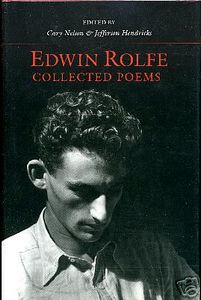This long-overdue collection, which gathers together more than two hundred poems written over a span of six decades, along with an extended biographical analysis by Fred Whitehead, permits a comprehensive assessment of the work of a man Thomas McGrath described as "one of the very best of the revolutionary poets."
Don Gordon made his name in the 1930s as a passionate and outspoken political poet, his work being published in the most prestigious American journals. In spite of his growing literary reputation he was called before the Un-American Activities Committee of the U.S. House or Representatives in September, 1951. Due to his openly communist views and his reluctance to give the committee names of fellow radical writers, Gordon was blacklisted from employment in the film industry. He devoted his time to writing poems, despite the difficulty of finding a wide audience for them.
Many of Gordon's poems are suffused with themes of revolution and political activism, but this collection showcases the breadth of the subjects he addressed in his sixty years of writing, expressed with a rigorous aesthetic sensibility in a style that incorporates diverse influences, including modernism and surrealism.
"Don Gordon is great," Meridel LeSueur wrote, "because he shows the vigorous and wondrous strength of the people." With this complete collection of his poems, readers can at last experience the full range of this vigorous and challenging writer.
ollected Poems
By Edwin Rolfe. Edited by Cary Nelson and Jefferson Hendricks; Introduction and Notes by Cary Nelson
Urbana and Chicago: University of Illinois Press, 1993.
Hardcover with dust jacket, xiv plus 337 pages.
From the dust jacket:
Edwin Rolfe (1909-54) is most widely known as the poet laureate of the Abraham Lincoln Battalion, the group of Americans who volunteered to help defend the elected Spanish government during its 1936-39 civil war. But as his Collected Poems shows, his career actually began in the revolutionary Left in New York in the 1920s. It continued into the 1950s, when Rolfe wrote a group of searing poems attacking the McCarthy-era witch-hunts. Impossible in some cases to get in print in the 1950s, these poems of the "American inquisition" are published here for the first time.
Rolfe's poems describe the hardships of the Great Depression ("the breath of homeless men / freezes on restaurant panes"), the experience of war ("War is your comrade struck dead beside you, / his shared cigarette still alive in your lips"), and the challenges of historical memory ("Why do I always return to the sunken road through corroded hills, / with the Moorish castle's shadow casting ruins over my shoulder"). They conclude with his witty and devastating attacks on McCarthyism:
Who used to lie with his love
In the glade, far from the battle-sector,
Now lies embraced by a lie-detector
And can not, dare not, move.
CARY NELSON, Jubilee Professor of Liberal Arts and Sciences at the University of Illinois at Urbana-Champaign, is the author of Repression and Recovery: Modern American Poetry and the Politics of Cultural Memory, 1910-1945.
JEFFERSON HENDRICKS, an associate professor of English at Centenary College, Shreveport, Louisiana, is coeditor, with Nelson, of Edwin Rolfe: A Biographical Essay and Guide to the Rolfe Archive at the University of Illinois at Urbana-Champaign.
The American Poetry Recovery Series. Edwin Rolfe's Collected Poems is the introductory volume in the American Poetry Recovery Series, edited by Cary Nelson. The board of advisors includes Daniel Aaron, Houston A. Baker, Jr., Carolyn Forche, Karen Ford, Reginald Gibbons, Paul Lauter, Philip Levine, and Alan Wald. The series will consist of collections and anthologies by poets whose work has not been made part of the traditional literary canon, including labor poets, feminist and minority poets, and socialist and anarchist poets.
